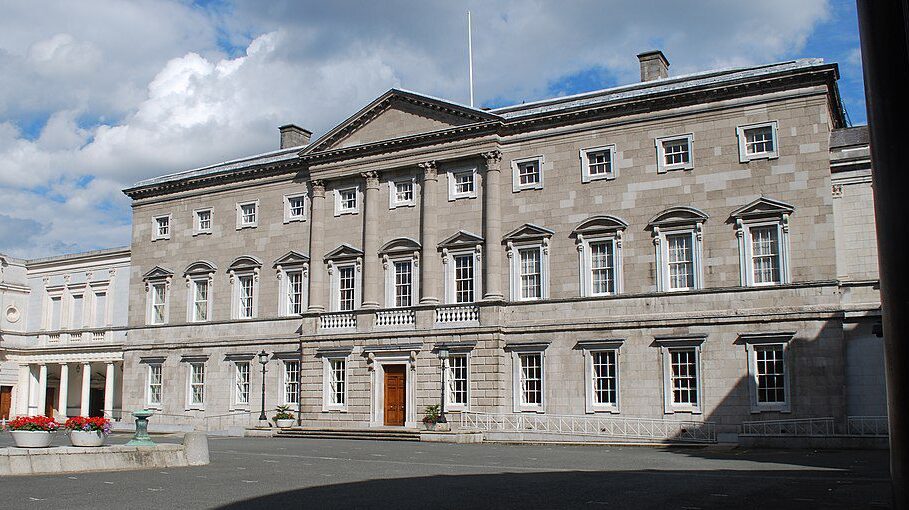
Leinster House, seat of the Irish parliament, Dublin.
Photo: Jean Housen, CC BY-SA 3.0, via Wikimedia Commons
The Criminal Justice (Hate Offences) Act was signed into law by Irish President Michael D. Higgins on October 29. This follows the Irish parliament, the Dáil, passing the Criminal Justice (Incitement to Violence or Hatred and Hate Offences) Bill by a majority of 78 to 52 votes.
Among five bills rushed through the Dáil in under six hours on the evening of October 23—a process that normally takes several weeks—the contentious legislation defines gender as
the gender of a person or the gender which a person expresses as the person’s preferred gender or with which the person identifies and includes transgender and a gender other than those of male and female.
As the bill was debated in the Seanad (Senate/upper house), populist senator Sharon Keogan read out the 72 genders which have now gained legal standing, needing 25 minutes to complete the jargon-heavy list.
The passage of the bill into law follows Justice Minister Helen McEntee’s confirmation last month that she was not proceeding with plans to introduce new hate speech laws, but would proceed with the hate crime element of the legislation.
McEntee said she wanted to “remove the incitement to violence or hatred provisions entirely from this bill so that we can progress this important element of legislation and send a very clear message that hatred and violence are not tolerated in our society,” adding,
I have said very publicly that I believe we need to update our 1989 Acts. I absolutely believe this needs to be next on our agenda.
Speaking earlier, Ms McEntee said that she “absolutely believes” that the Dáil will in the future consider introducing hate speech laws.
“I believe that instead of not enacting any element of [the bill], I wanted to ensure that hate crime, for the first time, was put on statute. We’re the first country across Europe to have it, and I absolutely believe that we need to have it,” Ms McEntee said.
A number of opposition politicians expressed strong objection to the revised Bill, including the Rural Independent Group, who voted against the legislation. Mattie McGrath said that the legislation should be “taken back.”
“Why the rush? Rushed legislation is often, nearly always, bad legislation,” he said, stating that the law was about “trying to intimidate ordinary citizens from having their voice heard. You don’t like the voice of the people,” McGrath told the justice minister:
Your government has been the most anti-ordinary people that I’ve ever seen here in my term of four governments. I don’t know why you’ve such a dislike for them. The games you’re playing with them and the legislation you’re passing is not helping the people.
“This is bad legislation which has been rushed through in the dying days of a bad government,” Sinn Féin’s Deputy Matt Carthy said, adding that “a proper consensus” should have been reached in the House, including “an actual definition of hate“:
The current definition of hate [in the Bill] is defined as hatred. It’s circular, and I don’t believe it’s an acceptable way of doing legislation.
Carthy said the hate crime bill is “trying to introduce a new definition of gender, despite there being no consensus as to what that means,” pointing out that the Bill defines gender as including transgender, and a “gender other than male or female.”
“Minister, most people do not understand what that means precisely,” he said.
Independent Deputy Danny Healy-Rae said, “We’ve been a democratic State for the last 100 years. What was wrong with it? Why are we trying to change it? Why are we trying to shut people up? Why are we trying to deny them the right to talk?”
Ireland’s Prohibition of Incitement to Hatred Act, 1989 addresses inciting hatred against groups of people, but not incitement to hatred against individuals, which led the European Union to criticise Ireland—like Bulgaria and Estonia—for not having laws on crimes aggravated by hatred.
This article, written by Maria Maynes, was originally published by Gript on October 23, 2024. It has been edited for length and updated by TEC. It appears here with kind permission.
